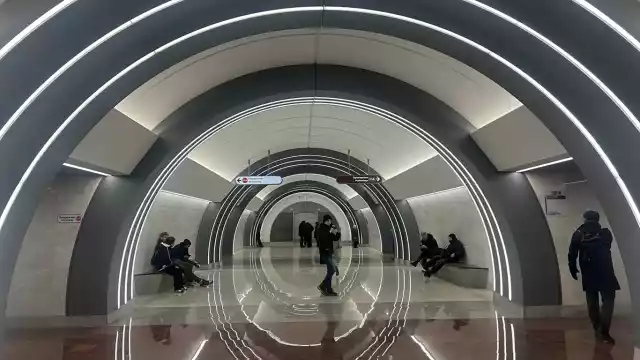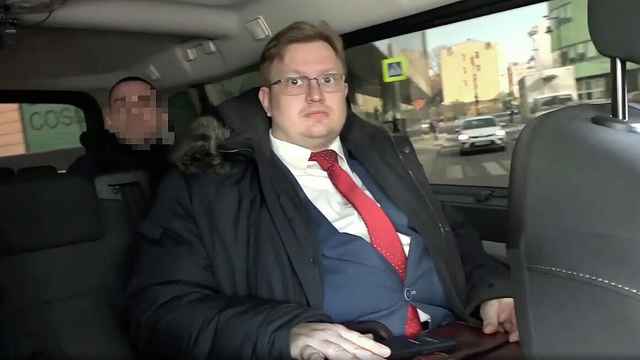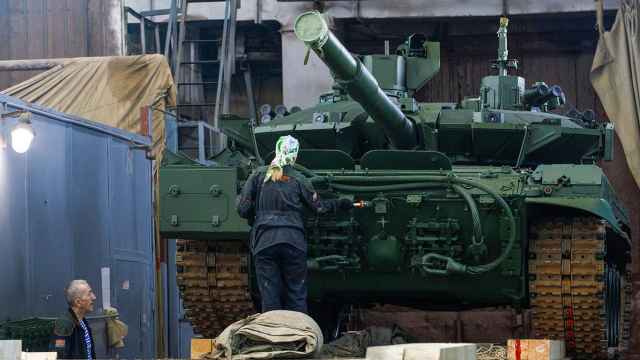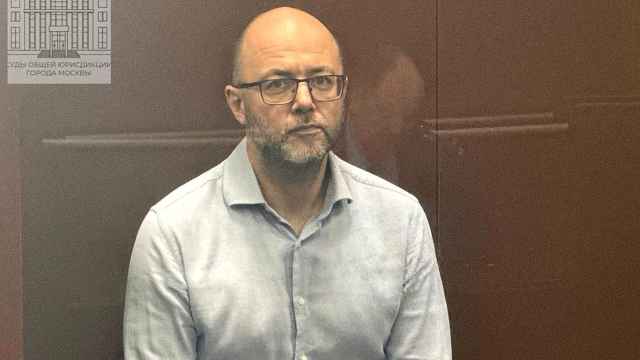Election officials reported unexpectedly high turnout, early United Russia victories and at least one death Sunday as voters took part in 7,865 polls involving about 100,000 candidates in 77 of the country's 84 regions.
Early results indicated that turnout topped previous regional elections, exceeding 50 percent in the Belgorod region alone, said Leonid Ivlev, deputy head of the Central Elections Commission.
The elections, a last rehearsal before the 2011 State Duma vote and the 2012 presidential poll, ended without any serious violations but, like last year's regional elections, was tarnished by violence in Dagestan, the elections commission said.
Despite efforts by election officials and police to maintain peace in Dagestan, the head of the Dagestani settlement of Khadzhalmakhi, Abdulmuslim Nurmagomedov, was shot dead in a clash involving about 500 residents on Sunday afternoon after 4,500 ballots were stolen overnight, said a spokeswoman for the regional police.
“The incident happened near the building of a local election committee in the settlement of Khadzhalmakhi,” the spokeswoman said by telephone.
At least two other people were rushed to the hospital with serious injuries, she added.
The fight started while election committee officials tried to carry inside new ballots to replace the stolen ones, police said. It was not immediately clear who had stolen the ballots and shot the settlement's head.
Nurmagomedov was not running in the elections, Ivlev told journalists.
Ivlev's boss, Central Elections Commission chief Vladimir Churov, promised last week to install more than 300 surveillance cameras in Dagestani polling stations to maintain calm.
Churov went to the Dagestani city of Derbent on Sunday to oversee the rerun of a mayoral election there after serious violations sparked violent protests during the last vote in October 2009. No violence was reported Sunday.
Mayoral elections were also held in Samara, Makhachkala and Pyatigorsk. Voters elected legislatures in seven regions, and the Central Elections Commission said late Sunday that United Russia was winning a majority in at least four of them: Tuva, Chelyabinsk, Magadan and Novosibirsk.
United Russia appeared set to sweep most of the polls after election officials refused to register many opposition candidates on technicalities. The Yabloko opposition party only managed to get registered in the Chelyabinsk region.
“We are content with the results of the elections,” Tatyana Voronova, a State Duma deputy with United Russia, told The Moscow Times on Sunday night.
Voronova said the party noticed a decrease in violations compared with previous years and praised the reported high turnout. “Voters clearly link their fates to the elections,” she said.
But Golos, the country's only independent election watchdog, said its monitors had observed widespread manipulations with absentee ballots to increase the turnout.
Golos deputy head Grigory Melkonyants said other violations included pressure tactics in which staff from state institutions were bussed en masse to polling stations and treating voters to gifts like discount cards.
“It looks like those tricks have already become common place,” Melkonyants said.
Golos covered about 2,800 polling stations in 10 regions.
The Communists complained that United Russia turned the elections into a "dirty quarrel."
"United Russia realized that it could not hold onto the lead, so we were met with fraud and outright slander," Sergei Obukhov, a Communist Duma deputy, said by telephone.
He also said the Communists appeared to have scored unusually good results in the Novosibirsk regional legislative race, with 30 percent of the vote, and in Magadan, with 20 percent.
The Central Elections Commission is expected to release preliminary results Monday.
Anger over widespread falsifications during the October 2009 regional elections, which included the Moscow City Duma, prompted the Communist Party, A Just Russia and the Liberal Democratic Party to stage a brief boycott of the State Duma. The standoff was resolved after President Dmitry Medvedev met with the party's leaders, although he supported the results and made no promises for serious election reforms.
A Message from The Moscow Times:
Dear readers,
We are facing unprecedented challenges. Russia's Prosecutor General's Office has designated The Moscow Times as an "undesirable" organization, criminalizing our work and putting our staff at risk of prosecution. This follows our earlier unjust labeling as a "foreign agent."
These actions are direct attempts to silence independent journalism in Russia. The authorities claim our work "discredits the decisions of the Russian leadership." We see things differently: we strive to provide accurate, unbiased reporting on Russia.
We, the journalists of The Moscow Times, refuse to be silenced. But to continue our work, we need your help.
Your support, no matter how small, makes a world of difference. If you can, please support us monthly starting from just $2. It's quick to set up, and every contribution makes a significant impact.
By supporting The Moscow Times, you're defending open, independent journalism in the face of repression. Thank you for standing with us.
Remind me later.





